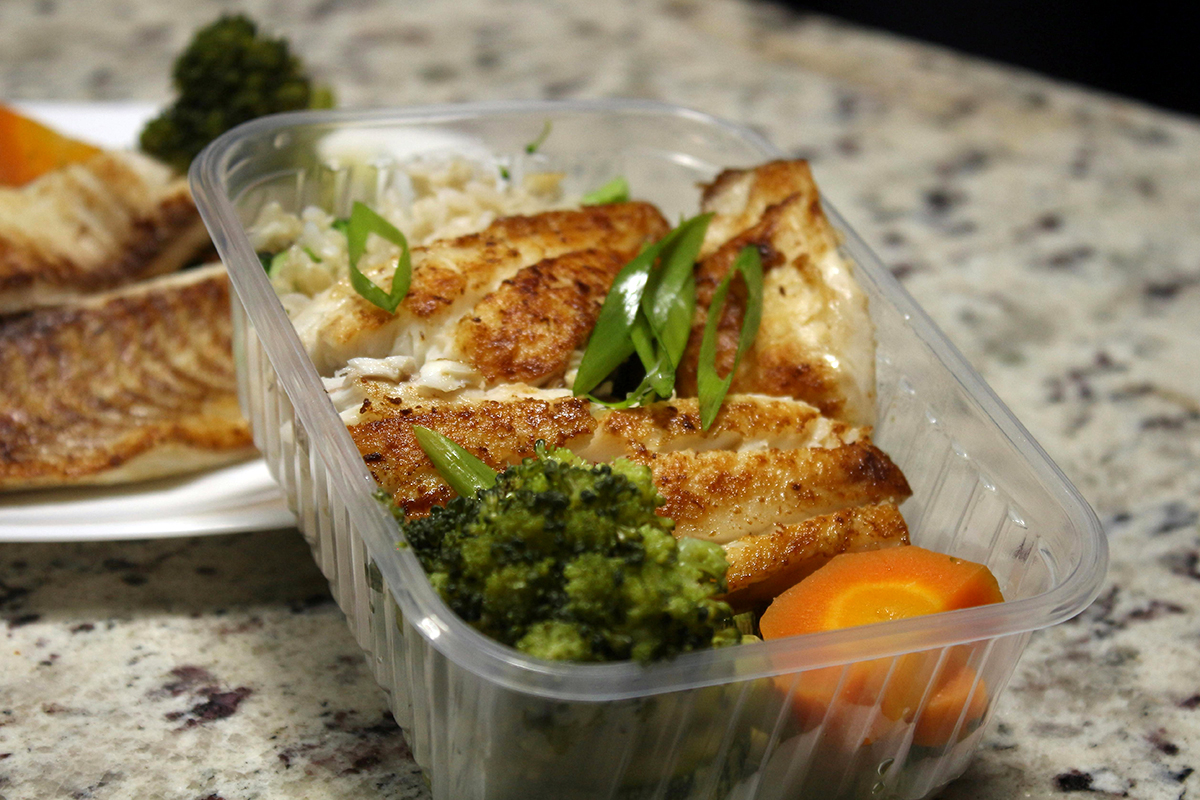When I get questions from parents, nutrition is one of the big three topics, right up there with sleep and screens. Nutrition questions are hard to answer with data because disentangling correlation from causation is nearly impossible. What we eat is so wrapped up in everything else we do that it’s very challenging to point to a particular food or even a particular eating pattern and say that it’s unhealthy or that it’s healthy.
But that doesn’t necessarily mean we know nothing. And my guest today, Dr. Robert Davis, is here to talk through it with me. Robert is an award-winning health journalist, and, most importantly, he’s a voice of sanity who realistically explores the nuances of nutrition, the food industry, childhood obesity, and how challenging it is for individual parents to try to parse it all. We talk about diet versus eating habits and the importance of language around that issue. We talk about food fads in the recent past and what we keep not learning from them (I’m looking at you, margarine); what Robert calls “nutritionism,” like obsessing about omega-3s instead of thinking holistically about our diets; whether ultra-processed foods are really as bad as we’re led to believe; kids and Ozempic; and how heavy a hand parents are supposed to take when it comes to their kids’ nutrition.
This is a tough topic. We need to eat, we need to feed our kids, and I don’t think we fully process how stressful it is to feel responsible for our kids’ health and, as they get older, their body image. Hopefully this conversation can help alleviate some of that stress.
Here are three highlights from the conversation:
What is the best diet to follow?
So that said, I would say that the best “diet,” or the best way of eating, is the so-called Mediterranean diet, and that has received more attention obviously over the years and has been the subject of greater study and has been validated more than pretty much any other way of eating that is out there. There have been a number of cohort studies — those are the kinds that show correlation, in which they follow large groups of people over many years or decades — and those studies have associated a Mediterranean diet with a lower risk of a number of different conditions: heart disease, strokes, diabetes, Alzheimer’s disease, obesity, the list goes on. And there are clinical trials. Those are the gold standard when it comes to proving whether something is effective, in this case, diet. And I should say, randomized trials are very difficult to do when it comes to diet, because think of all the challenges there. You have to make sure that people eat a particular diet, which is very difficult to begin with.
And then you have to figure out, okay, what else are they eating that may complicate that? Of course they’re very expensive, and you have to follow people long enough to really show an effect, and sometimes that can mean many years or decades. But that said, there have been several clinical trials on the Mediterranean diet that have shown that it can be effective in reducing the risk of both cardiovascular disease and diabetes. So we have evidence from there as well.
And then we have other types of evidence — small, short-term studies that show improvements in markers like cholesterol, inflammation, things like that — that also add to the very large body of evidence suggesting that a Mediterranean way of eating is very helpful or can be very helpful.
Is the idea of “superfoods” overblown?
Should the U.S. have better nutrition education?
I think those kinds of classes and that kind of education can be very beneficial because it’s culturally sensitive, it’s sensitive to the fact that people eat for a lot of reasons, including tradition and what’s culturally familiar to them. And so working within that context to help educate people around specifically preparing foods and preparing foods in a different way and adding other foods in, but respecting their history of eating and their way of eating, I think is really important. Because I think if we just throw more information at people and say, “Well, you need to eat more whole grains and you need to eat less saturated fat,” I think that’s not necessarily helpful. And to stop eating certain foods, stop eating fried foods, I think that’s going to be less effective than working with people where they are.
Full transcript
This transcript was automatically generated and may contain small errors.
So that said, I would say that the best “diet” or the best way of eating is the so-called Mediterranean diet, and that has received more attention obviously over the years and has been the subject of greater study and has been validated more than just in pretty much any other way of eating that is out there. There have been, and if we can talk about the different kinds of studies, of course, there have been a number of so-called cohort studies. Those are the kinds that show correlation in which they follow large groups of people over many years or decades and those studies have associated a Mediterranean diet with a lower risk of a number of different conditions, heart disease, strokes, diabetes, Alzheimer’s disease, obesity, the list goes on. And there importantly here are clinical trials. Those are the gold standard when it comes to proving whether something is effective, in this case, diet. And I should say, randomized trials are very difficult to do when it comes to diet because think of all the challenges there. You have to make sure that people eat a particular diet, which is very difficult to begin with.
And then we have other types of evidence, small, short-term studies that show improvements in markers like cholesterol, inflammation, things like that, that also add to the body of evidence, the very large body of evidence suggesting that a Mediterranean way of eating is very helpful or can be very helpful.
The advantage though is that there is so much flexibility that people can tailor this way of eating to what works for them. So for example, when it comes to protein, if you prefer fish or if you like nuts or if you like other kinds of protein, you can use whatever combination and whatever sources work for you, in terms of what you like and what you don’t like. So you’re not in a situation where you’re forcing yourself to eat foods that you don’t like, which is often the case on very prescriptive diets.
And so what I like to say about the Mediterranean way of eating is that it provides guidelines, but a lot of flexibility so that people can work within those guidelines to eat in a way that works for them. I also should say that it is a reflection of the fact that there is no single optimal diet, and I think that’s very important because often-
Related to this is this concept you mentioned of superfoods, the idea of elevating certain foods, whether it’s berries or whether it’s salmon or whether green tea, the list goes on, and elevating these foods to some kind of mythical status where we have to eat these in order to be healthy. Now granted, many, if not most of these foods can be part of a healthy diet overall, but to isolate these foods to say that we have to eat these foods to be healthy is really the result of very, very smart marketing on the part of companies that have latched onto this idea to convince us that we need these foods. And I think both of those ideas, nutritionism and superfoods, are ones that we need to resist when we’re thinking about a healthy diet, and focus instead on the overall dietary patterns that we have, the diet as a whole.
For starters, let’s talk about just the concept of ultra-processed foods. The concept comes from Brazil, it was developed in 2009, and basically it refers to foods that have gone through as the name suggests, a lot of processing in a factory. So the foods typically have additives, preservatives, colors, flavors, things like that, and then typically salt, fat and sugar on top of that. So think of things like hot dogs and packaged cookies and frozen pizza, sugary cereals, things like that.
So I think again, there’s pretty good evidence, or at least we’re seeing better evidence as we go, that these things are associated with a number of health effects. One of the shortcomings though is that number one, this category of ultra-processed foods may include and does include some foods that may not be so bad for us. For example, it includes packaged breads. Well, as we know, you can find an array of packaged breads, some of which we know are not good for us, but some of which are good for us that are high in whole grains and other things that aren’t necessarily bad for us. So, sometimes the ultra-processed category lumps together some things that should or shouldn’t be there.
I also can tell you as somebody who grew up in the south, there are plenty of things that people cook at home that aren’t so good for you that would not be classified as ultra-processed foods. Where I come from everything is fried and those would not necessarily be classified as ultra-processed foods but they aren’t so good for us. So it’s not a perfect system.
And then also the other hole we have here is that we don’t understand what it is about these foods yet that is so bad for us. Is it the salt, fat, and sugar? Is it the properties of the foods that typically cause us to over consume them? Is it the certain constituents in the foods, whether the whatever additives there are, the emulsifiers, the colors, the flavors, is it some combination of things? We don’t know that, and I think that this again is something that we need to understand better to fully understand the extent to which these foods are having an effect on our diets.
But the short answer to your question overall is, I would say that there’s enough evidence about the downsides of these foods to suggest that we should try to minimize them in our diets.
The other, I mean, when you think and compare that for example, to eating say an apple or other fruits. You’re not going to sit there and eat five apples because you’re going to fill up much more quickly on say whole fruit because it contains fiber and other constituents that make you feel full. So just something like that alone tells us that there is high likelihood that these foods do have certain effects on us that whole foods do not.
And so I think the point though here is we get back to this idea of, what is your overall dietary pattern? How big a part of your diet do these foods make up? And I think it’s reasonable to say that they should make up, to try to minimize them, meaning that you don’t have them as regular staples of your diet, but that it is to be expected, they’re going to be part of everyone’s diet to some extent.
And so I think that the two don’t have to be mutually exclusive. We can push legislatively for changes to improve the quality of the foods we eat. But I think also, there’s no escaping the role that parents have when it comes to understanding the properties of foods to the best of their ability and making the wisest choices they can. So I don’t think it’s one or the other. I think that regardless of how effective we can be in a societal way when it comes to this, it still doesn’t absolve parents of the need and the responsibility to focus on the individual foods and the overall patterns foods, of the quality of foods that they’re buying.
And I think sometimes the advice that’s given to people leads them to conclude that, well, if I can’t have this perfect or near perfect diet for my child, I’m failing and I might as well not try, and it’s just this is overwhelming. And that’s unfortunate, because I think the message needs to be, small changes are good and whatever small changes you can make as a parent, that’s a good thing.
The other part of this equation though is what happens once someone, a child or adult, becomes obese? And there it’s more complicated and here’s where the drugs come into play, because these drugs can be appropriate for certain individuals, particularly those who are at the upper ends of the obesity scale for whom diet and other measures have failed to help bring their weight down and who are at higher risk of a number of conditions from heart disease to cancer to diabetes. And so here in that case, those drugs can be an important option that some people have.
But I think to say that because we now have these drugs that we can abandon efforts around healthier eating or that that doesn’t matter as much, is a huge mistake because in fact, we need to focus on improving the quality of our diets to bring those rates down from where they are now.
And I also think that the other things that have been talked about with regard to kids, school lunches, that’s an important one because kids do get a large percentage of their calories at school, both breakfast and lunch, and to have stricter standards when it comes to making sure the kids have foods that are healthful. And so I think those two measures certainly could make a difference with regard to child nutrition.
I think that when we start getting into however, removing certain elements from the foods as certain people have done, whether it’s seed oils or whether it’s emulsifiers, we get into really complex and controversial science and I don’t think that is always necessarily helpful, just given the complexity of understanding what is it that makes foods good or bad for us. But again, getting back to this idea of overall patterns, any kinds of policies that can help people make better choices in keeping with those guidelines, I think is worthwhile.
So I think those kinds of classes and that kind of education can be very beneficial because it’s culturally sensitive, it’s sensitive to the fact that people eat for a lot of reasons, including tradition and what’s culturally familiar to them. And so working within that context to help educate people around specifically preparing foods and preparing foods in a different way and adding other foods in, but respecting their history of eating and their way of eating, I think is really important. Because I think if we just throw more information at people and say, “Well, you need to eat more whole grains and you need to eat less saturated fat,” I think that’s not necessarily helpful. And to stop eating certain foods, stop eating fried foods, I think that’s going to be less effective than working with people where they are.
And so for example, I would do sort of put some chicken in a skillet and make that, and I would just sort of, and then I would say, “Okay, well, I’m going to cut the chicken up and add a little bit of vegetables to that,” so that I would essentially sneak them in. And I know that parents sometimes do this and there’s controversy about whether it’s a good idea or a bad idea, but I think it can be a very effective way to essentially work them in into small ways into foods that you’re used to eating. And what that did for me was it said, “Okay, well this broccoli is okay. It’s not so bad, and I can sort of add a little bit of this to my chicken and the skillet,” and then gradually I would do that more and more and more.
So what has worked for me at least, was to introduce them in small ways into familiar things. And so I think it worked because I’ve now eat a number of vegetables. I still don’t eat as many as I should, but I eat a good number of vegetables, and introducing them slowly and gradually into familiar foods helped a lot with that.
Community Guidelines













Log in